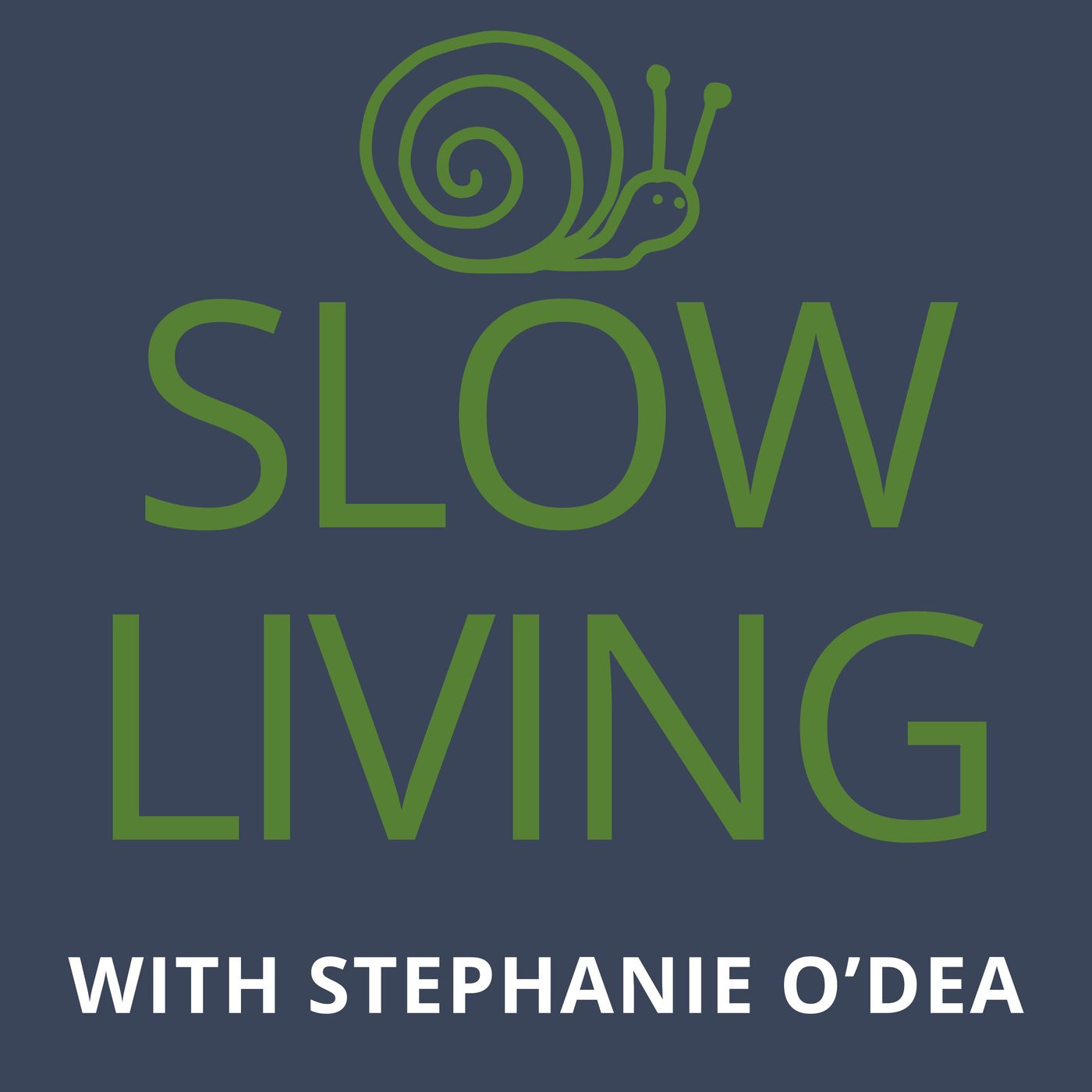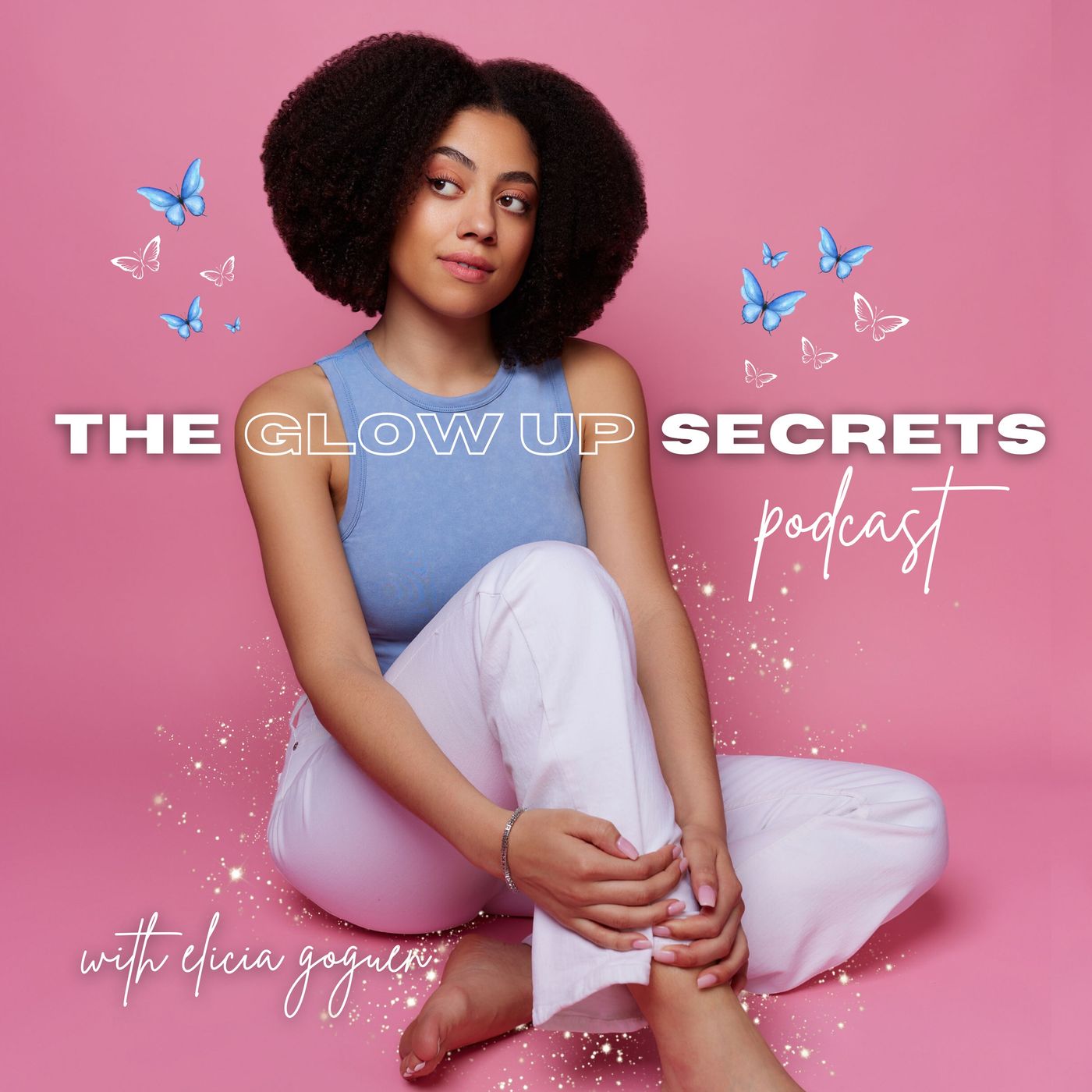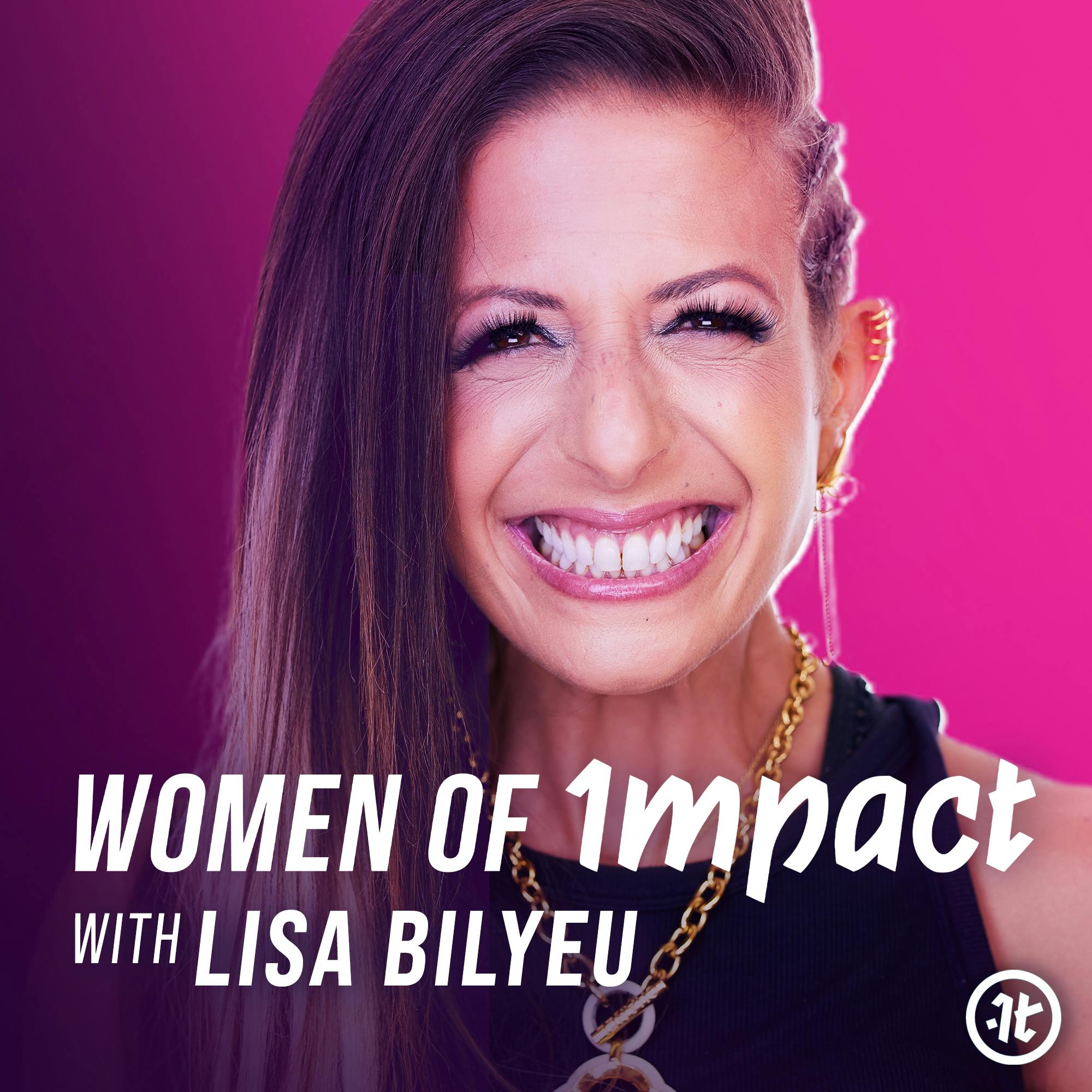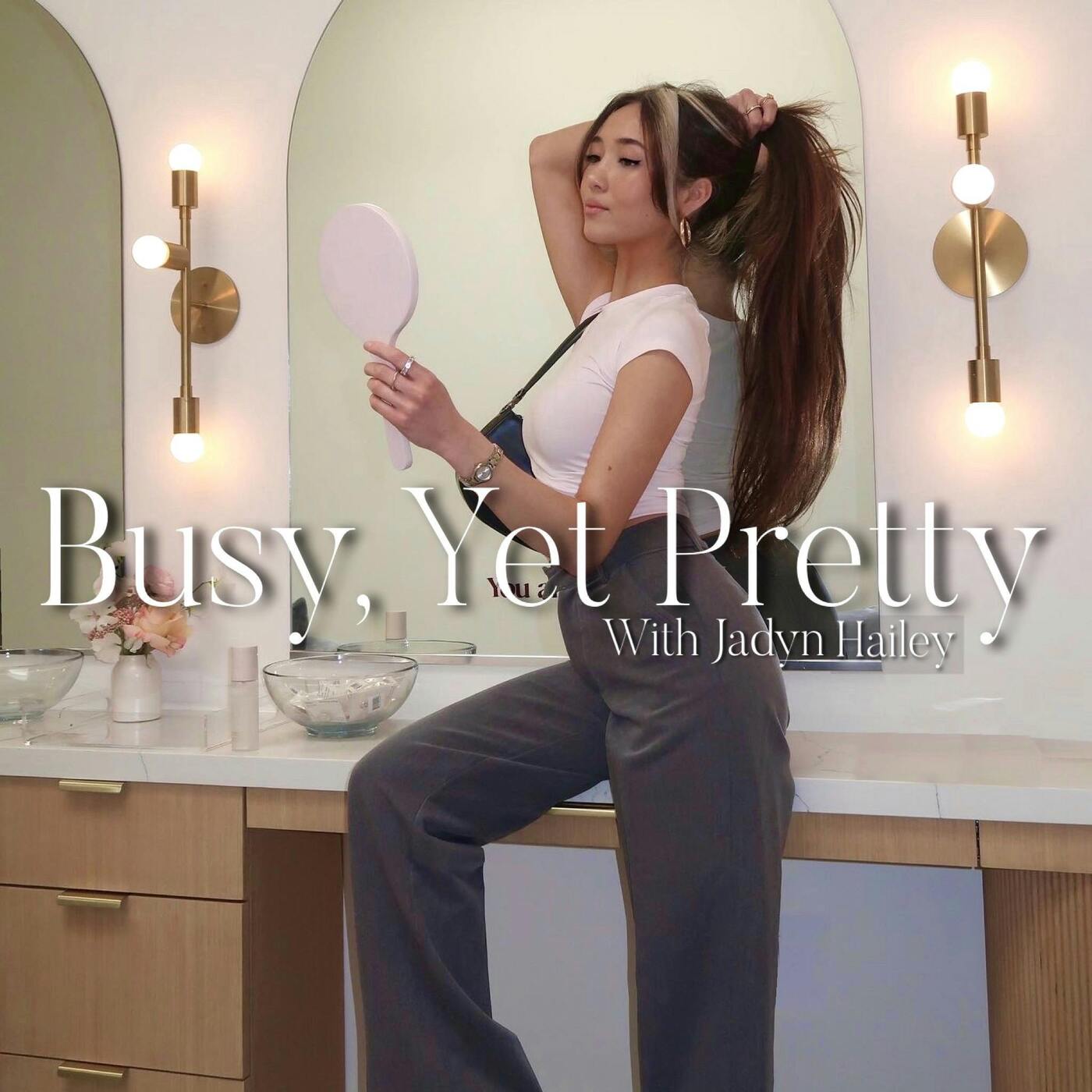
The Self-Help Podcast with Deepali Nagrani
Hi, I’m Deepali — a speaker, storyteller, and proud mom to a wonderful one-year-old. I live in Victoria, BC, Canada, hands down the best place to live!
For as long as I can remember, I’ve been drawn to public speaking. It lights me up in ways I can’t quite explain. I’ve always sought the stage, longing for a space to say something that matters.
Then one day, I realized: if you can’t find a stage, build one.
This podcast is that stage. It was born not just from my love of words, but from one of the hardest chapters of my life. At 32, after one of the toughest chapters of my life, I discovered something worth sharing: my voice, reshaped by truth and tenderness.
Here, I speak from the messy middle of motherhood, healing, identity, fear, hope, and everything in between. It’s not perfect, but it’s real. If you’re craving something genuine, something that feels like a deep breath — you’re in the right place.
Let’s speak the truth. Let’s find meaning together.
Welcome to the stage I built from the feeling of always wanting to be on one.
I’m so glad you’re here.
The Self-Help Podcast with Deepali Nagrani
Breaking Free from People-Pleasing and Living Authentically
Are you constantly saying yes, apologizing when you’ve done nothing wrong, or worrying about disappointing others? You might be caught in the exhausting cycle of people-pleasing.
In this deeply personal episode, I share my own journey of chasing approval, the hidden costs of always trying to keep others happy, and the liberating moment I realized freedom begins when you stop abandoning yourself.
You’ll learn:
- Why people-pleasing is often rooted in childhood experiences
- The subtle signs you’re stuck in the pattern
- How to set boundaries with compassion (and without guilt)
- Simple, practical steps to start living in alignment with your values
This week, I challenge you to pause before saying yes out of guilt and ask yourself: What do I really want?
✨ If this episode resonates with you, please rate, review, or share it with a friend—it helps more people discover the show and step into authentic living.
💛 Thank you for being here.
If something in this episode spoke to you, I hope you carry it with you — or share it with someone who might need it too.
I'd love to hear your story, your thoughts, or just how you're feeling after listening. Reach out anytime at deepalinagrani23@gmail.com
🌐 For more stories, resources, downloadable freebies please visit:
www.deepalinagrani.com
🕊️ This is just the beginning.
Take care of your body. Be gentle with your heart. And never forget — your story matters.
Hello, hello, and welcome back to the South Park Podcast with Pipali. Today we are diving into something that has been a huge theme in my life people pleasing. You know the constant need to keep everyone happy, to be liked to say yes, even when your whole body is screaming no. And if you have ever gone out of the way for someone not because you wanted to, but because you were scared of disappointing them, you're not alone. For years, I thought being agreeable meant I'm a good person, but what it really made me was tired, resentful and disconnected from my own self. So this episode is about shifting from people-pleasing to living authentically, where your choices come from who you are, not what you think others want you to be. If you've ever found yourself saying yes when you wanted to scream no, or just biting your tongue to avoid upsetting someone, or even apologizing for something that wasn't even your fault, you are in the right place.
Speaker 1:First things first. Why do we even become people pleasers? So let's go back to where this begins. People pleasing usually isn't random. It's learned, could be a result of childhood conditioning, maybe fear of rejection and abandonment, or culture, society or some gender roles. So let's talk about why so many of us fall into this pattern. Maybe you learned that being the easy child got you more love, or maybe you know, know, some conflict that you saw made you tiptoe around others just to keep the peace. Here's the thing. Nobody wakes up one day and decides I'm going to raise myself to make other people comfortable. People pleasing is very much learned. Maybe you grew up being told be the good girl, don't't upset anyone, don't talk back. Maybe you just observed, maybe you heard that too Slowly but steadily, you equated good with quiet or agreeable. People-pleasing begins as a survival strategy, because the truth is, no matter how hard you try, there will always be someone who isn't happy. Now, this truth will definitely piss you off, but is also very, very likely to set you free. So go live your life without worrying about others, and oftentimes society reinforces this too. If you're a woman, you're told to be nice, to be helpful, and if you're, in certain cultures, respecting elders sometimes means silencing your own self. It's not that we are weak, it's that at some point this behavior kept us safe, but as adults, it keeps us stuck.
Speaker 1:Quick story I once threw this elaborate dinner party. I cooked everyone's favorite dishes, decorated the house, made sure there was music for every person's vibe. But at the end of the night someone offhandedly said Hmm, I wish there was more dessert. And you know what that stuck with me? Not the compliments, not the laughter, not the good times, just one plain rude comment. And maybe it was not coming from a place of judgment, but it just came in a spiral.
Speaker 1:That's what people pleasing is about. It makes you forget about your own self. You lose sight of what you feel because you're so focused on everyone else, and I didn't realize how expensive people-pleasing was until I hit a wall. The cost of people-pleasing manifests in many different forms. It could be emotional burnout, resentment or losing touch with your own identity. Now I want you to imagine this Every time you say yes, when you mean no, you take a little step away from your true freedom, from your true self, and over time you end up living a life that doesn't even feel like yours.
Speaker 1:I've had seasons where my calendar was full, but not with the things I love. It was full of obligations, favors, commitments, work that left me drained and just disoriented and, the worst part, nobody else even noticed because I was so good I was just too good at pretending and smiling. Through it all your calendar fills up, but not with the things that bring you joy, peace and happiness, but just these commitments and obligations that make you feel trapped. And, the worst part, nobody notices because you've gotten so good at pretending that you're fine. So take a moment and think about the last time you said yes, when you wanted to say no. How did you feel afterwards? Did it make you feel tired, maybe frustrated? That feeling is your inner compass, telling you and guiding you that you're off track. So please listen to it. And it will very rarely shout. It will always whisper.
Speaker 1:So there are many subtle and not so subtle but rather obvious signs that you are a people pleaser, and I've often found myself validating these credentials. And you can relate if you have said yes immediately, without checking in with yourself. So that's the number one red flag. It's a big sign If you try and avoid conflict at all cost, if you're constantly apologizing, and sometimes even over apologizing, and feeling guilty for taking your time, feeling guilty for taking the time to do the work or just to rest, or to do something that brings you joy, or just to do nothing. Really, you might recognize yourself in them.
Speaker 1:Do you say yes before you even pause to check if you want to. Do you apologize when you've done nothing wrong? Do you feel anxious if someone is upset with you? Or if you see or witness a change in behavior, you start overanalyzing to death, wondering what did you possibly do wrong? And I used to be that person. I used to apologize for things like the weather or if someone bumped into me. It's wild when you start noticing these patterns.
Speaker 1:But here's the good news Awareness is the first step to breaking free. Awareness is the first key to action. So there are a few things that have helped me, some practical tips and steps to stop people pleasing. And here's where the actionable part comes in. First up is pause before answering, instead of defaulting to yes, say, let me get back to you or let me look into my schedule and I shall be back with an update. And this buys you time. You're in no rush to make a bad decision or even a good one. Start small, start small with a no Practice, declining small requests like sorry, I can't pick that one up today, or hey, how about we do this over the weekend? Or can I call you later? Things like that. It's important to set boundaries, but it's also equally important to set boundaries with compassion. Boundaries are in walls. They are guidelines for healthy relationships. And for boundaries to be truly effective, you just don't need to say them. You really need to live your values in action.
Speaker 1:Number four, and often a profound tool, is checking in with your body, with your own God-gifted intuition. Notice that if you feel light, or do you feel tight or heavy or uneasy before agreeing to something, that's your intuition speaking. Now let me share a quick story. No, last year someone asked me to co-lead a huge event. My old self would have jumped and would have instantly said yes, even though I was already stretched thin. But I paused. I said let me think about it and get back to you. And that pause was everything. It gave me the time to check in with myself and later I wrote back. I would have loved to support you, but I can't take this right now. And you know what? They respected it and they did not hate me, and they came back to me later as well.
Speaker 1:Earlier, I used to think saying no to opportunities meant losing them forever, while it is true for some of the opportunities, but for the remaining others there is still some leeway. There is still some gap and buffer, to speak up, to breathe, to understand and then respond. There's a big fear of disappointing others and to me this is one of the hardest parts, because underneath people pleasing, really, if you think about, is what Is the fear? If I say no, no, they won't love me anymore, or I may come across as stubborn, rude, and that is what I have personally experienced as well. People have often misunderstood me and judged me for setting boundaries, saying no more than yeses and for standing by what I believe. Earlier it used to ruffle many, many feathers, but now I don't really care. So the thing is, if you're upset by my values or what I choose to do or, just as importantly, what I choose not to do, it's not my battle to win or even think of.
Speaker 1:And here's the truth. People who truly love you will not leave you because you set boundaries. And if someone does leave you because you honored yourself, because you checked in with yourself, first, that relationship was conditional. Living authentically means trusting. Your worth isn't in how useful or agreeable you are, it's in who you are. And if someone only values you when you're available 24-7, that's not love, that's a transaction, that's a one-way network traffic. The people who really care about you, they respect your boundaries, and if they don't, maybe it's time one-way network traffic the people who really care about you, they respect your boundaries and if they don't, maybe it's time for you to question that relationship right.
Speaker 1:Living authentically is really about defining what authenticity means to you, what it means to you, and it isn't about being brutally honest or selfish. It's about alignment. It's it's when what you say, what you do and what you believe all of that match. It's when what you say, what you do and what you believe in all of these three match. And for me, authenticity has looked like saying no to social events that I don't enjoy, speaking up when something doesn't sit right with me, not bundling or closing down on my emotions just because I might upset someone and, for that matter, creating this very podcast instead of waiting for someone else to hand me the mic and the stage, because I want to tell the story, because I wanted to be the story and the storyteller for the longest part of my life, and it turned on me one day that, if I cannot find a stage, I might as well build one.
Speaker 1:So a practical tip for you is to try journaling every day, maybe each morning or just before you go to your bed, whatever works for you. And what are the three questions I want you to write and answer are what do I want today, what do I need and what do I feel? And that's how that's exactly when you answer those three questions what do I want today, what do I need? How do I feel? That's when you tune back into yourself and remember people pleasing is not your identity, it's a habit, and habits can change. Every time you choose honesty over approval, you take one step closer to freedom. You get one step closer to finding your own self. And as we close, let me leave you with one final story.
Speaker 1:The first time I said no to something big, turning down a work opportunity that looked great on papers and on the outside but felt wrong in my gut I was terrified. I thought I'd regret it big time. But months later that space only in retrospect that I think that space allowed me to focus on my own health, allowed me to align and be in touch with my values, with what brings me joy. Spend time doing things I love allowed me to spend in touch with my values, with what brings me joy. Spend time doing things I love Allowed me to spend more time with my son and my family, and all of these things are important to me. They're very, very important to me. They make me feel grounded. In a way, saying no meant that I created space for something aligned. When I said no to something that I did not like, I inherently said yes and drifted towards what I naturally love and enjoy.
Speaker 1:And that's the beauty of authenticity. When you stop filling your life with what doesn't serve you, you create room for what actually does. Every time you choose honesty over approval, you reclaim a piece of yourself. So here's my suggestion for you this week Notice one moment where you want to say yes out of guilt. Pause, brief pause, and ask yourself what do I really want? And I'm sure your heart will give you the answer. Living authentically is a practice. It's not a destination, it's a journey, and I promise you, when you start showing up as your true self, the relationships you keep will be deeper, real and so much lighter. Thank you so much for spending this time with me on the Self Help Podcast with Deepali. If this episode resonated with you, please spend a moment to rate, review or share it with someone who might need this message, and if you've got a story about breaking free from people-pleasing. I'd love to hear that. Until next time, say yes to yourself and know when you need to. That's where true freedom lives. Bye-bye.
Podcasts we love
Check out these other fine podcasts recommended by us, not an algorithm.

She's So Lucky
She's So Lucky
The Live with Audacity™ Podcast - Women Overcoming Society
Melissa Stuart | Audacity Coach, Authenticity Expert, Multi-Brilliant, Deconstruction, Alignment, Confidence, Purpose, Clarity, Freedom, Abundance, Manifest, Heal, ADHD, Subconscious Shifts
The Confidence Chronicles
Erika Cramer
The Mel Robbins Podcast
Mel Robbins
Oprah's Super Soul
OprahHelp Me Be Me
Cloud10
Slow Living
Stephanie ODea
The Glow Up Secrets
Elicia Goguen
Women of Impact
Impact Theory
Happier with Gretchen Rubin
Gretchen Rubin / The Onward Project
Busy, Yet Pretty
Jadyn Hailey
How to Survive
Joe Shervell and Chris Morris
The Happiness Lab with Dr. Laurie Santos
Pushkin IndustriesYOU ARE A BADASS
em_evolving
We Can Do Hard Things
Treat Media and Glennon Doyle
Unlocking Us with Brené Brown
Vox Media Podcast Network
A Better You
Manoela Ford
Almost 30
Krista Williams & Lindsey Simcik
